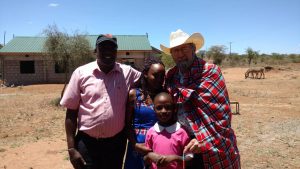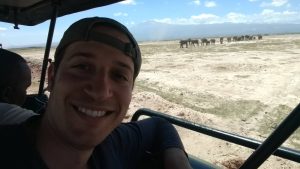By: Brett Kaufman
Last month I returned from a trip to Kenya funded by CCC and Oregon State University, and it was one of the most impactful experiences of my life. As an archaeologist interested in the fusion of design, anthropology, and humanitarian engineering, I felt very lucky to be a part of this multinational interdisciplinary team that included engineers, geographers, ranchers, conservationists, and community leaders and members.
Yes, I probably saw more wild animals in one day than I have in my entire life combined, but this shocking biodiversity turned out to be a side thought. What stuck with me was witnessing hard working pastoralist people struggle to escape the grips of poverty brought about by the overwhelming combination of institutionalized economic imbalance due to a colonialist legacy, current policies aiming to subdivide and conquer, and climate change. As water, food, and pasture disappear, wildlife conflict is on the rise, and herders have to move their cattle days away from home to find grass. We began working with communities to introduce the concept of engineering design, with a future hope that training can be provided and community members can develop their own prototypes to improve land use practices, reduce human-wildlife conflict, appraise livestock values, and preserve milk for distant sales.
Of course there aren’t easy answers to any of these issues, but most of the people I interacted with are hopeful, just cautious. There are many opportunities for foreign scholars and philanthropists to get involved, and Kenya is a great place to work as a foreigner.
It was a true honor to be a part of the team and to follow in the footsteps of my friend, the late Dr. Shiloh Sundstrom who pioneered these relationships for all of us.
Brett Kaufman
University of Science and Technology Beijing



